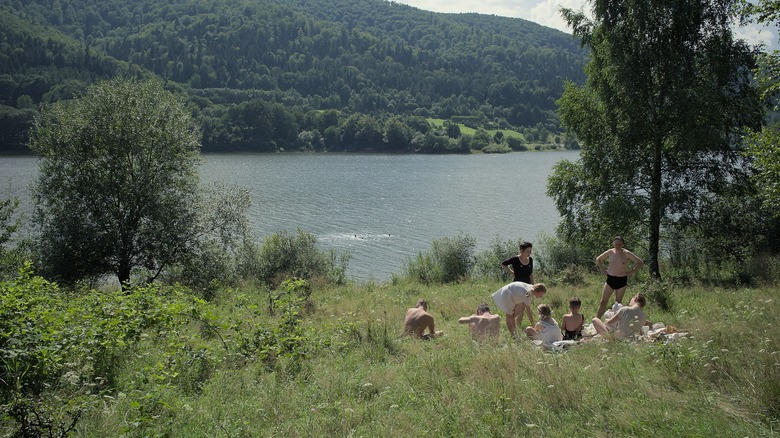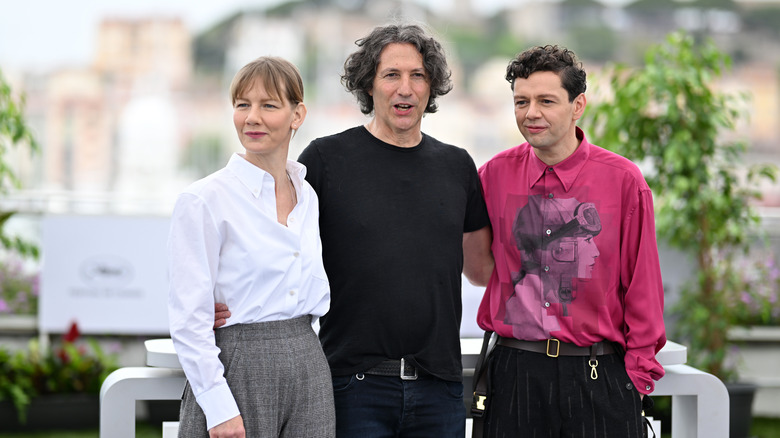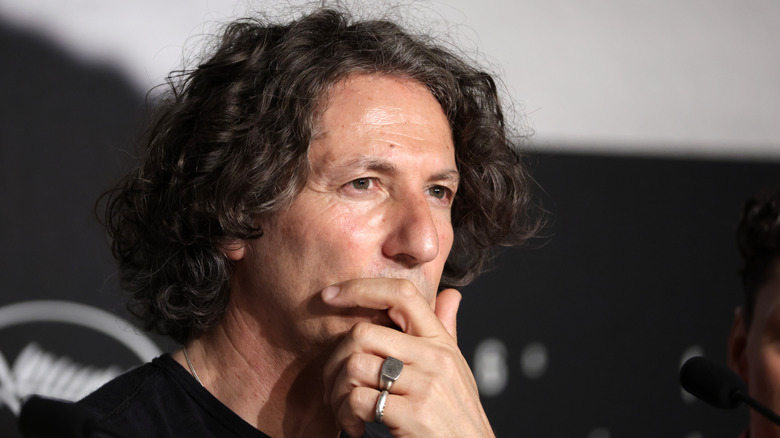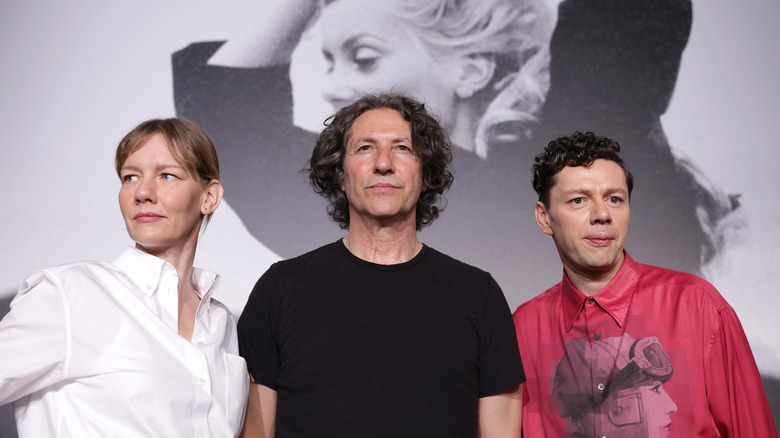The Zone Of Interest Review: A Vital Meditation On The Nature Of Malevolence [Cannes 2023]
There is a persistent hum of the incinerator furnace of Auschwitz throughout the entire 106 minutes of Jonathan Glazer's new film "The Zone of Interest." 106 minutes of being gently reminded — through sound, small actions, and abstract imagery juxtaposing the natural human order — of the indifference to suffering all people are capable of. Glazer's first feature film in ten years is a sick, bleak, and absolutely vital reimagining of the Holocaust drama, one that finds a new way — and possibly a more effective way — to put an important spotlight on the face of atrocities. There is always a lesson in the horrors of the real world, and Glazer's movie serves this one up on a silver platter, along with the severed head of our own potential apathy. There is absolutely no doubt this quiet film will go down in history as one of the definitive narratives of Holocaust fiction. Do not look away.
"The Zone of Interest" follows a German family part of the Nazi command who build themselves an idyllic home life — but the realities of where they've physically built that home life start to slip from beneath the curtain as people, places, and horrible things begin to shift around them.
It's impossible to understate how genuinely upsetting this film is without being outwardly upsetting for a large part of the run time. As Sandra Hüller's matriarch, Heddy, takes delight in crafting the perfect home for their family, the audience is subjected to subtle glimpses into what is going on next door: the sheer horror of Auschwitz. It all lies in the sound design, which forces the most disgusting sounds of the coldness of war into our subconscious. Screaming, gunshots, the yelling of brutal fascist men in power, that hum of the incinerator.
The sound of cruelties on an endless repeat
These harrowing sounds are a constant symphony underscoring every move the characters make, and in their most silent and introspective moments, the noises simply overwhelm. It's hard not to cry while watching some people — for, effectively, no particular reason at all — being allowed to live to the fullest as others senselessly die in grisly, atrocious ways right beside them. The effect Glazer creates is nauseating, and it allows the film to create a grim little home inside the audience where the sound of its cruelties play on an endless repeat.
Glazer is now known for his experimental approach to visuals in his work, and fans of his will be happy to know he doesn't skimp on those details in "The Zone Of Interest." The screen runs red, images are framed that beget new images in their ambiguousness, and darkness consumes everything. While the film isn't as experimental as, say, his 2013 stand-out "Under the Skin," it still gives the audience the kind of inventive framework that anchors his best and most original directorial choices from past works. It's just enough to remind us that we're watching Glazer, but not too much that it removes us from the realities of this dark era in history.
A harrowing example of hate instilled, not innate
This film is truly an ensemble piece, with each of the main characters of the family building a full picture of the way these unspeakable deeds affect the human psyche. Hüller's skilled and contained portrayal of a loving mother who harbors the same cruel views as her husband gives the audience emotional whiplash, cycling between attachment and detachment. The family's children also oscillate between sweetly behaved and wretched, living by the examples of their compromised parents. One particular scene where the family's older brother viciously locks his younger sibling in the family greenhouse—the way he knows his father locks his Jewish victims into the neverending hell of Auschwitz—is a harrowing example of the way hate is instilled, not innate.
However, the star of the show is the calculating and guarded Christian Friedel, who stars as real-life SS officer Rudolph Höss. This real-life character was the longest-running commandant of Auschwitz throughout the war, and throughout the film, we see him facilitate new methods to enact the disgusting "final solution." Friedel's reserve is striking. He is a man of service and of honor, but his principles lay bare the manufactured evil within his heart. Friedel's character is the foundation of the film in the same way he was the real-life foundation of Auschwitz, which is why Glazer's ending is particularly brilliant.
The genuine nature of unbridled malevolence
When a person does something inherently evil, they don't always have a full-on reckoning of clarity about their wrongs. In fact, humans can and do convince themselves that evils are purely good with quite a bit of ease — but that doesn't mean their souls, deep down, agree. In a startling conclusion that holds hands with the incendiary finale of the 2012 documentary "The Act of Killing," Friedel's Höss undergoes a subtle and reactionary inner revolution that makes the audience intimately understand exactly how this kind of depravity and disregard can manifest in an utter ravaging of the physical body — the thing Nazis were forcefully taking away from Jews — in tandem with the psyche.
It's a staggering moment that sums up exactly what Glazer wants us to take away from his sinister yet wholly necessary film: that human beings infected with evil can never truly escape the horrors they've inflicted, and the genuine nature of their unbridled malevolence will live on forever inside them, no matter how much they ignore the realities of who they truly are.
/Film Rating: 10 out of 10



